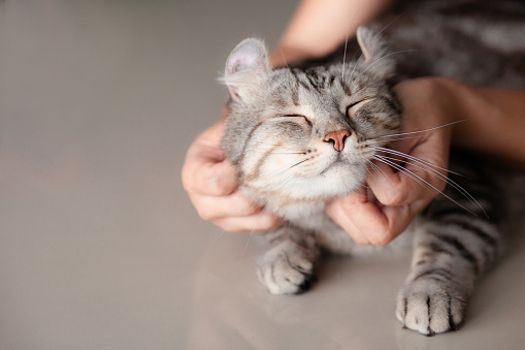Our Services
Kitten Care
A thorough physical checkup will be performed on your kitten during the visit to check for illnesses or developmental problems.

Kitten Care
Welcoming a new kitten into your household is a special and exciting time for everyone involved. Kittens are loving little balls of fun, from jumping, napping, rolling around they can provide hours of entertainment.
Our veterinarians and staff understand this and want to provide you with the best information and health-care to ensure a great start for your new kitten’s life. The time and energy you devote to your kitten in the beginning will set the tone for your relationship for years to come.
Maximizing Your First Visit to the Veterinarian
Our comprehensive physical examination and gathering of information from you will give us a complete picture of your kitten’s health during your initial veterinary visit. This is also the purrfect opportunity for you to gain the critical kitten care information you need to be a knowledgeable, responsible, and caring pet owner.
Some of the topics that we will cover during the first visit are:
- Vaccination Schedules
- Spaying or Neutering
- Litter Box Training
- Appropriate Kitten Diets
- Flea, Tick & Heartworm Preventative
- Symptoms of Illness
Although most of these considerations and recommendations apply to all kittens, our veterinarians will take into account your kitten’s age, your lifestyle, and any existing health issues to provide personalized recommendations.
The Importance of Quality Kitten Food and Proper Training
Signs Of Illness in Kittens
Kittens are more susceptible to health problems than adult cats due to their immature immune system. We know no pet parent wants to think about their precious kitty feeling poorly.
These symptoms all require immediate veterinary care:
- Upper Respiratory Infections
- Ear Mites
- Vomiting
- Diarrhea
- Lethargy
Kitten Vaccinations
Kitten vaccinations typically start at the age of 6-8 weeks. Vaccines must be given as a series of timely injections, but the recommended vaccines and schedule of injections may vary depending on your kitten’s individual needs. It is important to follow your veterinarian’s recommended vaccine schedule to ensure that your kitten receives proper protection. Our veterinarians will offer personalized advice during your kitten exam for your happy, healthy and growing cat.
Understanding Kitten Teething: A Guide to Helping Your Furry Friend
Just like human babies, kittens go through a teething phase when they begin to develop new teeth. During this phase, your kitten will grow a set of adult teeth. Kitten teething is a natural and sometimes painful part of a kitten’s development process. However, it is also a behavior that can become problematic if not properly addressed. It is important to provide age-appropriate chew toys so they are not tempted to gnaw on other objects. Kittens tend to put objects in their mouths as a means of exploring and playing. Of course, kittens can also chew items we don’t want them to — most often electrical cords, houseplants, leather objects, clothing or shoes.
Electrical cords are one of the more dangerous things your kitten can chew. Cords look enticingly like strings and even make satisfying noises when batted about. Your first line of defense is to cover the cords.
Houseplants are also very dangerous to cats and kittens. Check your plants’ possible toxicity with the link provided below and consider removing the harmful plant or placing it well out of reach your cat.
https://www.aspca.org/pet-care/animal-poison-control/cats-plant-list
Why Should I Spay or Neuter My Cat?
Spaying vs Neutering: What is the difference?
Both terms refer to the surgical sterilization of an animal, the procedure you choose depends on your pet’s gender. Females are spayed while males are neutered.
The procedures may also be referred to as being “fixed”. Whether male or female, both procedures sterilize your cat so they cannot have kittens and may also prevent certain diseases and health conditions later in life.
Neutering in Cats
Neutering is the common term used to describe the surgical procedure also known as orchidectomy. A veterinarian performs this surgical procedure, both testicles are removed in order to sterilize a male cat. In general, complications are rare during a neuter procedure. However, as with any anesthetic or surgical procedure, there is always a small risk. Pre-operative blood work is a useful screening test that may detect pre-existing problems that could interfere with the pet’s ability to handle anesthetic drugs. The Pets I Love recommends neutering your male cat at around six months of age.
Benefits of Neutering Cats
- Risk of testicular cancer is eliminated
- Reduces the risk of prostatic disease in later life disease
- Reduce the urge for male cats to spray their urine on surfaces to mark their territory
Spaying in Cats
Benefits of Spaying Cats
- Risk of ovarian and uterine cancers is eliminated
- Unspayed female cats also carry the risk of developing pyometra – a fatal condition of the uterus that requires surgery to treat
- Breast cancer is the number one type of cancer diagnosed in unspayed female cats
If you are interested in learning more about spaying or neutering your cat or would like to schedule a consultation with one of our veterinarians, please contact us at 845-395-9200. We are here to support you and your pet every step of the way!
Socializing Your Kitten
Kitten socialization is one of the essential ingredients for a happy, well-behaved, and confident cat. Socialization is an assortment of stimuli and experiences they might encounter in their adult lives. As they learn how to explore their world, kitten become acclimated to various stimuli and situations. Exposures must be done carefully, so the kitten remains calm and interested in engaging and does not become frightened or overwhelmed. Cats have unique personalities, some cats love to be around people and other pets and others prefer to be left alone. The goal is to socialize the kittens so that they are comfortable around all people and pets and will be happy in their new homes. Visitors may be able to offer treats or stimulate play using a favored chase toy. For some kittens, every stimulus may seem overwhelming. Never force your kitten to ‘face his fears’ when he seems panicked or fearful, as it may worsen the fear. Allow your kitten to explore all the new sights, sounds and feels at his own comfortable pace. Your veterinarian can offer advice tailored to your kittens’ specific needs.
We would love to meet your new kitten! Our team is here to help make your visit to the vet as fear free as possible!
If you are interested in learning more about spaying or neutering your cat or would like to schedule a consultation with one of our veterinarians, please contact us at 845-395-9200. We are here to support you and your pet every step of the way!
